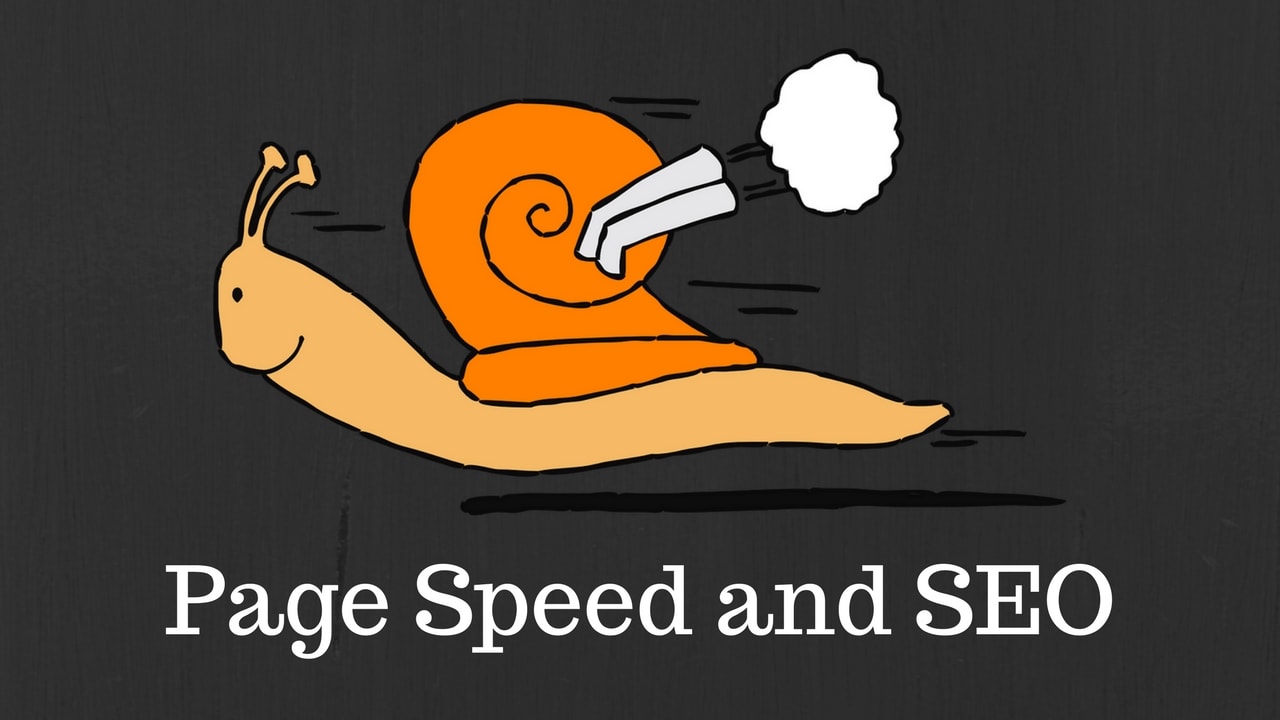One aspect of Technical SEO to never overlook is page-loading speed. Many owners of growing websites struggle with page load times. As traffic increase they see website performance degrade. Keeping a website well optimised requires true knowledge and understanding of how the Internet works.
On the other side, your website performance affects not just the visibility of your business in the SERPS but also the user experience of your customers.
The average attention span online is getting shorter than ever. The simple truth is that if your website doesn’t load quickly, potential clients won’t hesitate to head to your competitors.
To help you start heading into direction ‘better website performance’ we asked three well experienced digital marketers to share their vision.

David Sayce is a digital marketing consultant who helps businesses develop and implement effective marketing strategies that get real results.
Contact David to kick things off. This will be more fun than you think!
Q1. How do you describe your job in a few sentences for someone that knows nothing about SEO
I help businesses grow, using digital channels to increase sales and reach new customers. I help businesses to understand their (potential) customers and work out how best to be found by them within Google.
Q2. Why is website performance such a hot topic right now?
It’s a competitive market! While website performance has always been important it has sometimes been overlooked for a ‘flashy’ website with little thought on how SEO works. For a rather high percentage of my clients, it can be the competitive advantage, with a well-optimised site raising their visibility across organic search (and helping the performance of PPC). Of course, the best part is a well-performing site is a pleasure for the visitor! You often only get one chance to make a great impression, make it count!
Q3. What are some of your favourite (best-loved) tools for checking load times & locating problems in a website’s performance?
First I dive in there myself and get a feel for what is going on, how the site appears, ease of navigation, is it clear what I am supposed to be doing. My first point of call is often GTMetrix, quick and easy, I will often run a site through this a number of times during the initial stage of a project. Google Page Insights is also good to view, the simple scoring can be a useful guide for a client to better understand what is happening on the site. After that, I will nnormallydig into Google Analytics & Search Console to see what I can find out from there.
Q4. Give us some of your tips of how to decrease page load time.
Old School – Keep It Simple! for so many websites it is often about getting rid of bloat and optimising. One of my favourites is still the client who had uploaded all of their images straight from the photographer and resized in the CMS, the average image size was around 10mb, ouch! Check those page sizes! It is equally vital to get a good developer onboard and make sure the foundations of the website are running lean…. and then there is hosting if after all of that your hosting is unreliable or slow it is time to upgrade or more likely find a new host.
Q5. What are we going to see happen in the next few years in terms of web performance?
Ah, what does the future hold….? Well, I always like Darwin’s quote for this:
“It is not the strongest of the species that survive, nor the most intelligent, but the one most responsive to change.”
SEO has evolved so much in the last 20 years (it was all so easy in the late 90’s). I think we are going to see smarter businesses become much more integrated, removing silos and dated ways of working. I think we are going to see Search Engines become much more relevant to personalised searches, perhaps to the point where they are guessing what we want next and offering suggestions. Perhaps the search engine of today will no longer exist and it will be more the omnipresent assistant (I like the idea of JARVIS from the Iron Man films).
Q6. Finally, is there something exciting that you or your company is working on in terms of web performance that you can tell us about?
Optimisation and integration are key to what I do, and that is what I continue to investigate, learn and test… no secret labs, or teams of MIT grads working on projects (unfortunately). Over the last 20 years, I have been trying to make the internet a little bit better and that is the plan for the next 20+. Always learning and passing on what I can.

My mission is to get your message out there to people and companies who need, want and are looking for what you have to offer. Massive fan of football and Chelsea FC.
Q1. How do you describe your job in a few sentences for someone that knows nothing about SEO
“Omi, so what exactly do you do?” This must be one of the most repeatedly asked questions I get. Very often I’d try and give a simple answer. Essentially find ways to increase your online presence on the web, help match your service/product to its correct market audience and be instrumental to improving lead volume or sales.
Sometimes people don’t get it so I would just say ‘ my job is to make your website more visible to search engines’.
Q2. Why is website performance such a hot topic right now?
Have you ever spent a long time waiting for a page to load? Websites that load slowly are a major annoyance for users. Many studies are showing that potential clients tend to leave a website if it loads slowly. This is not ideal especially if you are running an e-commerce website.
And then there is Google. Google is obsessed with page speed. In a bold move in 2010, the search giant announced that page speed may be included in their search ranking algorithm.
Many people have asked me the same question “ do page speed really matter to Google and why’. There is a very simple answer: Yes it does. It creates a better user experience.
It’s true that some aspects of page speed – such as a user’s locale and their internet connection speed – can’t be controlled, but the rest is all up to us. So there is no excuse of not optimising your website for speed. Something I have noticed over the years is that when optimising for speed I also tend to find issues not directly related to speed so optimising for speed is a great place to start in understanding your overall website performance.
Q3. What are some of your favourite (best-loved) tools for checking load times & locating problems in a website’s performance?
Tools I recommend: Checking your website’s page load speed is a simple task. There are hundreds of free online tools that can load your pages from different geographic locations and tell you exactly how long it took to download.
My starting point is always the PageSpeed Insights tool. From render-blocking JavaScript files to CSS in above-the-fold content, this tool will pinpoint most of the factors preventing your page from loading quickly.
My second stop is normally the Web Page Test tool. The cool thing about this tool is the option to select the location from which to run your test. This can be cleverly used to track how your speeds vary across the world. Another cool feature is the way the test is run. It’s divided into a first view and a repeat view. This helps to diagnose and understand what maybe be a 1st time DNS lookup delay. It is very important to understand when running tools like these that a first time DNS lookup will usually be slower. In case you are comparing total load times for your web pages it is sometimes better (and somehow logical) to run a test multiple times and in the end take an average of the results.
Q4. Give us some of your tips of how to decrease page load time.
I cannot really rank them as they are all important but I normally start with prioritising ‘visible content’ on the page.
First, let me answer the question what is visible content (often called ‘above the fold’). In simple words, this is the portion of your website that visitors see before they start scrolling.
Very often websites that look very fast to load are as large as slow websites. Very often those websites have made the effort to optimise the visible part of their website thus giving the impression that the site is loading instantaneously.
Some may call it cheating, but users love pages that load quickly and so does Google. In my experience, this is the quickest and the most effective task you can do to speed up your pages.
As recommended by Google there are two main strategies to “prioritise visible content”.
Structure your HTML in a way that loads the critical, above-the-fold content first.
Reduce the amount of data used by your resources.
I am going to translate those requirements into more understandable language.
To understand the first requirement we should start from ‘ground zero’ and look at how a browser loads a page.
- Browser finds your page and downloads the HTML.
- Browser looks (parses) through the HTML code.
- Browser runs into something it must load so browser stops parsing HTML
- Browser loads the external source.
- Browser goes back and continues parsing the HTML until it runs into another external source that needs loading.
The external source could be a Javascript file, an image or indeed a CSS file. It is quite obvious by now that for a page to load quickly all of those 3 elements should be modified. On the other side for the content above the fold to load quickly it should not rely on any external resources.
So for the three prime suspects my solution is:
- HTML – make sure your content is loading before anything else even if you have to introduce separate divs just for the content ‘above the fold’.
- CSS – either combine external CSS files or introduce an inline CSS block specific only to the loading page.
- Javascript – postpone (defer) the loading of your Javascript files before the content is loaded. Note: This shouldn’t be done before some careful planning/thinking – as indeed the look of some elements on the page may depend on Javascript – but this is probably the best thing you can do to reduce your page load time.
Explaining the second requirement coming from Google is easy. To reduce the amount of data need to render your page you only have to minify your resources (HTML, Javascript, CSS). Minify is exactly what the name is suggesting – make your resources smaller. A tool I can recommend is the CSS Minifier.
The broader meaning of minifying your resources is deleting files that are not in use.
A good example would be a WordPress Theme. Normally they come in different colours. But just because you’ve chosen the red background it does not mean that the CSS file responsible for the green background is not loading. And what if the theme has a bigger background colour choice. I hope you get my point.
Q5. What are we going to see happen in the next few years in terms of web performance?
As we all know web browsing is shifting to mobile. More than ever people are looking for your products and services on their handheld devices. I can see a lot of companies still struggling with the idea of mobile-friendly web pages.
On the other side, many people say page speed has nothing to do with SEO. They are probably right as firstly the official position of Google about page speed and rankings are quite unclear and secondly, we can’t really measure the impact page speed has on the SERPs. I also see heavily bloated websites still ranking pretty well.
So if we are to combine the two statements above we may conclude that web performance is somehow not important.
Quite the opposite. Google started talking about mobile friendly pages being given a boost in the SERPs and if this was not enough they’ve also introduced the so-called AMP pages.
The AMP project is all about pages that load instantaneously. Although AMP is not yet a ranking factor I am expecting in the near future websites developed with AMP in mind to be given higher ranking than slower and unresponsive sites.
Therefore, the faster your page, the higher you rank and the more your content gets seen by your potential customers. It’s a win-win situation.
Q6. Finally, is there something exciting that you or your company is working on in terms of web performance that you can tell us about?
I am currently working for Daily Mail – the most visited news website in the world – so page speed for us is of a paramount importance. We have just introduced AMP for our most visited sections – news and showbiz – so I cannot wait to start analysing the results.
When it comes to news website Google is giving a special treatment to AMP pages by including them in the AMP news carousel on mobile. This is a massive change, as previously, all news stories were in a neat list. The images on these AMP headlines are more than four times larger than the other news article results. In short, the front page just got a lot tighter.
In my opinion if you care about mobile at all (and you should) it’s time to take the jump into AMP. There is a clear indication that Google is moving into direction faster web with AMP, so you need to get in now.

William Rock is a True Geek in every possible way. Having a vast skill set in digital marketing he is in the business of keeping companies SAFE ONLINE and helping them GROW their Internet Traffic into qualified leads.
Q1. How do you describe your job in a few sentences for someone that knows nothing about SEO
My Job Rocks, as I enjoy teaching those who wish to learn more about improving their business online and offline, and setup meetings every month to discuss the progress of the team as well improvements seen within analytics tools along with understanding the core of the company and helping to develop a voice for that business online … No Fluff Marketing 🙂
Q2. Why is website performance such a hot topic right now?
Website Performance has been a big deal ever since we learned how to build sites, however, it is getting a ton of attention these days. Especially since Google has developed free tools helping webmasters better understand load time of simple things such as Image Size, to evaluating your CSS and JS scripts. Keeping in mind that in the last few years we have seen more searchers using their smartphones we need to be concerned with user experience (UX) even more if we want them to engage with the company.
Q3. What are some of your favourite (best-loved) tools for checking load times & locating problems in a website’s performance?
I like to use a combo of different tools such as GTmetrix as well within Google Analytics you can get a ton of details at https://support.google.com/analytics/answer/1205784?hl=en other tools I use would be SEMRush with a Site Audit looking to improve areas it also found to be problematic for user experience.
Q4. Give us some of your tips of how to decrease page load time.
Start with the basics first 🙂 Rome was not built in a day, so starting with the easy stuff first such as looking at your images and finding out the file size .. Many websites use tools to insert images into the web page however if you don’t start with a nice quality low file size you maybe increasing load time when not needed.
There are tools out there to help decrease the image size without losing too much quality and if you are going to use the image for a thumbnail resize it and save it as a thumbnail to upload vs. just uploading the larger image. Again this is just the basics, next run tools like GTmetrix and see what else you can improve 🙂
Q5. What are we going to see happen in the next few years in terms of web performance?
Technology is always improving, one thing will be more smartphones and depending on their data plans worldwide so if your website is full of large images and or takes to long to load, they may go repeat the query moving a possible interaction with them to a competitor. No one wants to eat up their data plan on your website 🙂 Make it fast, and optimise for performance.
Q6. Finally, is there something exciting that you or your company is working on in terms of web performance that you can tell us about?
We have always focused on improving as technology evolves, however, some clients don’t choose to always take the advice of us making those modifications since the tasks can involve a good amount of time and we have seen clients choose to do other improvements in content, video and or calls to action first then come back to the page speed topic again, all in all still getting the job done.


Leave a Reply